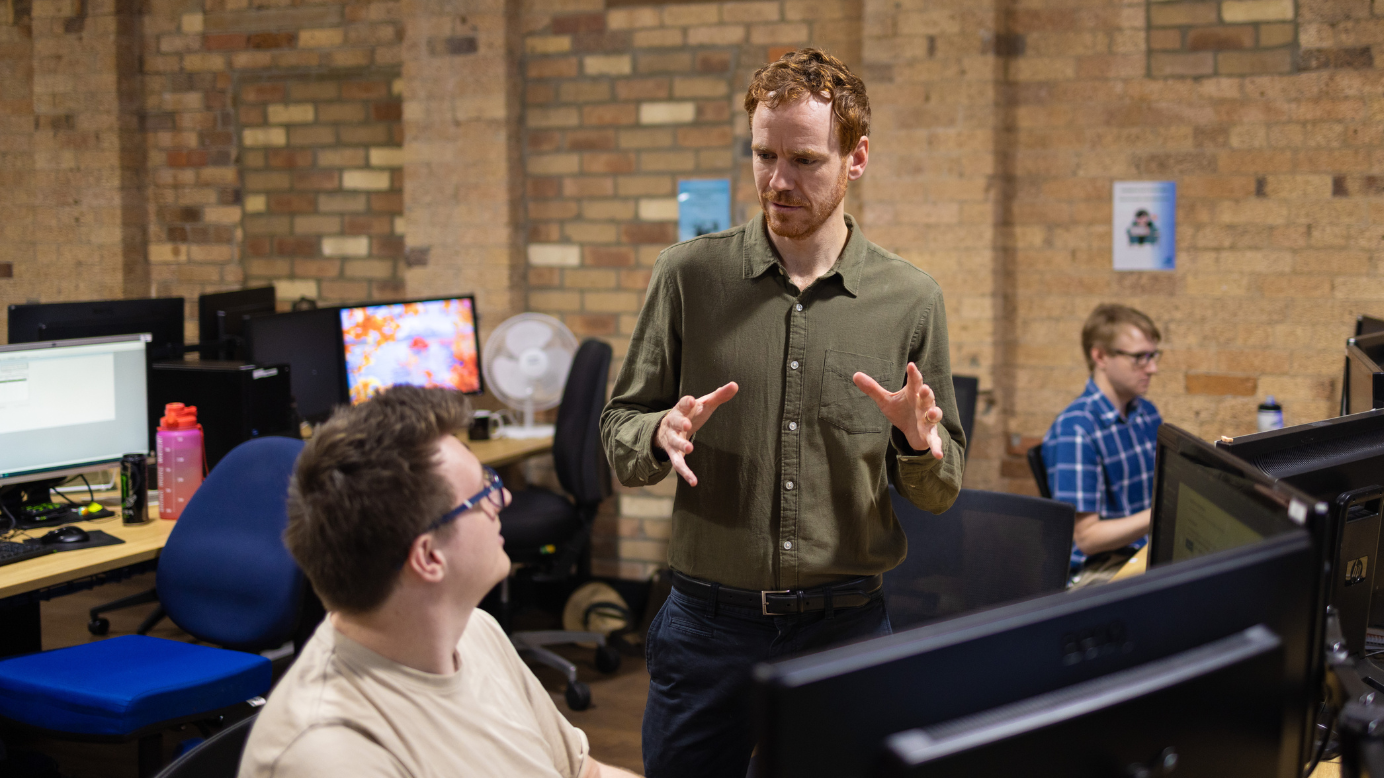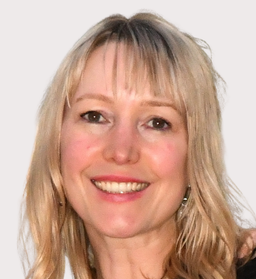
Justice through jobs: Empowering neurodivergent voices in the workforce
Table of Contents
Ancient wisdom, modern challenge: The case for inclusion
A recent article by Skye Cusack devoted to Prof Scott Avery, who promotes inclusion for people with disability and First Nations Australians, features a stunning image of footprints left by a one-legged man near Lake Mungo (NSW) some 20,000 years ago.
The explanation offered by Aboriginal Elders – "That's a one-legged man on a hunt with his community" – is a potent reminder that inclusivity and compassion are in our DNA. And yet we struggle to recognise the value of diversity in contemporary society, and this is particularly obvious when one considers employment statistics across disability spectrum. Employment is a critical factor contributing to the wellbeing and quality of life, and nowhere is this more evident than among neurodivergent people. The good news is that the landscape is changing, both in the research and implementation of inclusive workplace practices.
Recently, I had a chat with Geoff Smith, the 2025 Qld Australian of the Year and inaugural Chief Executive Officer of Australian Spatial Analytics (ASA), one of Australia’s largest social enterprises. What ASA is building under Geoff’s leadership is nothing short of remarkable as it demonstrates tremendous opportunities created by the inclusion of neurodivergent people in the workforce.
Miroslav Kapuscinski: Your mission statement is: To increase workforce participation for neurodivergent people and foster a generation of data professionals. Was it a singular event that became a seeding moment or was it much more complex evolution that led to that vision?
Geoff Smith: "We started in 2020, about 5 years ago now, and the inspiration behind it was the social problem of unemployment, particularly for autistic people. The unemployment rate is about 34% if you are autistic in Australia, and for under 30s it's over 60%. The inspiration came from working with young autistic people in my old organisation – I worked in disability employment. There were untapped strengths there, but they were being supported into jobs that were not aligned with them. It was really about employing autistic people at scale in things that they could not only be good at but also interested in."
Reimagining recruitment: Breaking down barriers
MK: Can you walk me through how you identify and recruit neurodivergent talent? How does the process differ from traditional recruitment methods?
GS: "We set up as a registered charity, a social enterprise dedicated to training. We were different in that we focused on encouraging young autistic people to apply so there was a feeling of safety - otherwise they wouldn't apply for those roles. We know that neurodivergent people can be really strong with the right support, so that kind of openness from the first instance was important.
Secondly, we believe in on-the-job training rather than requiring educational certification, so we have no prerequisites for prior experience or qualifications. We run our team through sophisticated cognitive and pattern-related tests to see if they have the right aptitude to be good data analysts - we can train them on the job effectively. That removes the barriers for those who think they could be good at something, but they won't give it a go because they know they won't get an interview.
And then thirdly, we send them the interview questions in advance - why create this kind of strange recruitment environment as if you want to catch them out - people don't need to think on their toes in a lot of analytical jobs – they can look things up. We have panels of young autistic people who interview them as well and help them feel settled. We want to set people up for success - we know that if they've got the right aptitude, they can learn on the job and be really good analysts. Reducing autism unemployment requires a different mindset – people can be great once they're given the opportunity, rather than locking them out and making them acquire all those prerequisites that they'll never use in the job anyway."
Building Inclusion from the ground up
MK: The key word in your work is inclusion. It's a term that is thrown around a fair bit, but the actual implementation is often far from ideal. What changes or supports have you introduced to create a workplace where neurodivergent employees can thrive?
GS: "We're so fortunate in what we do – because inclusion is part of our DNA. We employ neurodivergent people - everyone is different in their own way and so there are multiple factors at play. One is demographics. People are a lot younger - they haven't been given a chance before, or they have been rejected from other workplaces that haven't attempted to understand them. There's an enthusiastic culture and a willingness to learn and succeed. I think that helps because our young people are interested in co-designing their own supports. It's not just ASA management saying, ‘we do various programs - here's life skills, social skills, financial literacy - do these, and you'll get your passport to become a great employee’. It's more ‘choose your own adventure’.
We offer, through generous philanthropy, life skills support programs on the side. But it is up to each analyst to be able to choose and understand what they want to complete. They have their own support network, their own neurodivergent working groups that actually run those programs so that it's not us versus them. Obviously, we have great support staff who are often in the same demographic as our young analysts. If someone's neurotypical and they're much older or come from a completely different walk of life, that makes it harder to build rapport. We try to remove those barriers.”
Pathways to growth: Supporting long-term success
MK: Can you tell me how you support long-term growth for neurodivergent employees, especially in terms of development of new roles and leadership qualities?
GS: "We've got our own ‘People and Impact’ team, and that includes normal kind of human resources and recruitment elements. We also have an Employment Transitions Coordinator, and we contract support programs, so we partner with other autism organisations who are experts in those life and social skills in order to develop bespoke programs. We, the management, are not the experts - the experts are the young people themselves who co-design programs with these outsourced autism organisations. That helps them to increase their financial literacy, social and life skills.
The Employment Transitions Coordinator helps them if they're looking to expand their career past us. Once they've been with us for a couple of years, we actively support them to apply for and accept jobs with our customers. We love our organisation to be a starting point for these careers. And that means our customers who experience skill shortages are really invested in a project going well, because they might want to directly employ someone who has already worked on that project. Also, the core life-skills supports that we get from external experts help reduce the turnover rate. Most people stay with us until we can support them into another job when they're ready."
MK: Do you work with external organisations to find suitable candidates?
GS: "No. We employ people at full award wages from day one and don't require partnerships to get people in. Some previously unemployed people have come to us through disability employment service providers, but the supply is not the issue. Our wait lists are hundreds long in each office.
"We're not an NDIS provider, which allows us to be more open as a community organisation. We welcome people regardless of their government support. Our main focus is to partner with organisations that offer industry accreditation in the areas that we specialise in, helping our team to build core competencies and gain valuable work experience. While things may change, the social problems related to employability are so significant that we don't need a funnel to take people into our system."
Changing perspectives: The business case for neurodiversity
MK: Is there notable progress in employing neurodivergent people? Or do we still have significant attitude and prejudice issues to combat?
GS: "I think we're making huge progress. I often say ASA wouldn't have worked 10 years ago. There just wasn't enough community awareness of what neurodiversity was, and the opportunities that employing autistic analysts can provide. I think the fact that more and more people are being diagnosed with autism shows that we really need to think differently about this. Otherwise, it will be an enormous social issue that will become intractable. So, the awareness and the extra diagnoses in recent years undoubtedly mark progress and help to promote the strengths of a neurodivergent workforce.
I know there's some blowback, but I find that employing neurodivergent people is still gaining momentum because it is strengths-based. Yes, those people need customised support, there'll be some developmental matters and issues in the workplace, but the strengths far outweigh the cost of supports that are required. So that's a great value proposition for an organisation who can't find talent.
In line with recent trends, we've started neurodiversity awareness training at ASA. We're a data services company. We provide technical services to companies, but they often ask, 'How do you do this? How do you support so many neurodivergent people, particularly ones that haven't worked before?' We’ve co-designed awareness training sessions, and that's become a revenue generator for us. We’ve started doing them at organisations that aren't our customers, and we’ve initiated an e-learning course as well. That kind of systems change is really breaking the ceiling, because big organisations and government departments can employ a lot more people than we can. This demand and interest will drive neurodiversity unemployment down over time."
MK: What would you say to other companies that think inclusive hiring is "too hard" or risky?
GS: "I would say: ‘Do you have any skill shortages in your organisation? If you have those skill shortages, why aren't traditional recruitment pathways filling the jobs that you need, particularly in data and technology? Maybe the people don't study the right things at the moment, or maybe you just haven't found the right talent. If you were a gold miner and you were digging the country up and there was no gold there, and you kept digging and kept digging in the same well, would you expect the same results? Or would you try an alternative hole in the ground?’ I guess that's what we try - there's an alternative pathway here. It's not 'You should do it because it's a great thing for the world.' That's an added bonus. You should do it because you need to, because you have skill shortages.
And a more inclusive, diverse environment is better for the whole organisation and its culture. Our customers love working with our teams because it's more than just a job for them and you don't know that until you start working with autistic people."
MK: I understand the ultimate aim is to make employment of neurodivergent people the norm rather than the exception. Can you elaborate on the strategies to achieve this?
GS: "I do say my dream is for ASA not to need to exist, because organisations will just openly recruit neurodivergent people themselves, rather than having to source their services through us. Firstly, it's got to start from the top - you need a will to recruit a little bit differently to employ neurodivergent people, particularly those who have been so far left behind.
Secondly, the good thing about autism is that someone always knows someone - it is quite close to people's hearts, so once you've considered recruiting a little bit differently, you will get a snowball effect within your organisation.
Thirdly, government intervention must play a role. Autism constitutes the highest percentage of plans in the NDIS - people name autism as their primary disability – so it makes sense to encourage and support employment of autistic people."
MK: Do you think that the development of AI systems will benefit or actually impede the inclusion efforts?
GS: "Well, the answer is both. It is an opportunity and a threat, and that would be for any initiative or organisation. The benefits? Lots of jobs will not be taken by AI but rather by people who know how to use AI - and we find that autistic people can pick it up a lot quicker. A lot of the inbuilt AI in our systems is latent for most people, but if you've got curious brain, like a lot of our team do, they can develop better competencies for the work we do quicker.
But yes, there are threats. There are fewer testing grounds for the young people who don't have experience in these data jobs. We give people a leg up and exposure to the geospatial and engineering fields, but if AI does all that grunt work, then you don't learn the concepts on the job. You’ve got to go back in the classroom and then the pyramid of upskilling becomes more difficult because there's no base of the pyramid anymore. No one really knows what's going to happen, but in our field, there's still plenty of work for those more manual jobs. We've got to adapt and harness those opportunities that I mentioned, because a lot of neurodivergent people can be really great at the AI tools that are already around."
MK: What has Geoff Smith learned from his employees throughout this process?
GS: "Oh, man, so much. And it's why we're here. I've learned a lot about resilience - it’s a massive tool in the kit of many neurodivergent people. Even when they’ve been told no before, once they get that first door opening into ASA, they jump through it.
I've also learned that the thirst for learning, the curiosity, will get you through the tougher times, and it is quite infectious. I've also discovered that all those myths of people just wanting to be on their own and not socialise are just that - it honestly depends on the person. The funniest people in our organisation are neurodivergent people, the loudest people as well, the most socially kind of curious as well. I guess don't judge a book by its cover is what I'm learning - if you know one autistic person, you know one autistic person, and we've got a full array of emotions every time I walk the halls. It certainly is a very fun place to work."
MK: I'm immensely grateful for your time – certainly an eye opener for me. This is truly impressive and important work you and ASA are doing. I hope we can catch up again for an update sometime in the future.
Charity Journal - Australia Newsletter
Join the newsletter to receive the latest updates in your inbox.








